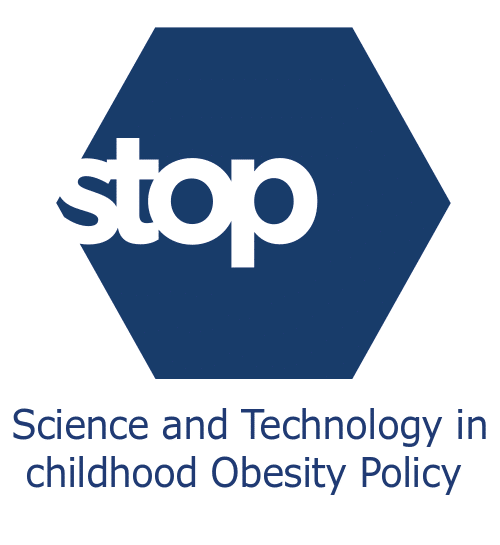19 January 2021
Globally, 80m adolescents are living with obesity, and without substantial intervention, the figure is due to rise to 150m by 2030. But what interventions work?
The STOP Project, funded in 2018 by the European Union to identify new interventions to reduce childhood obesity in Europe, released its latest findings, providing new evidence to support governments and policy makers identify what are the most effective childhood obesity interventions.
Approximately 41 million children between the ages of 5-19 years old were affected by overweight or obesity across Europe in 2016, a 12% increase since 2010.1 That number is set to reach 10 million by 2030. Often moralised as individual or parental failure, childhood obesity is in reality predominantly driven by commercial and biological forces beyond individual control. The message is clear: innovative interventions are urgently needed to halt the childhood obesity epidemic.
Professor Franco Sassi, Director of the Centre for Health Economics & Policy Innovation at Imperial College Business School and project leader, states “In the United Kingdom, one in ten children live with obesity, one of the highest rates in Europe. If no effective action is taken, this wave of childhood obesity will lead to more than one in three adults aged 20 and over being with obesity in the UK by 2025.”
Schools as a place of chance?
Children spend half of their time and consume at least one-third of their daily calories at school.2,3 Could modifying schools’ food and physical environments be a double-win? Findings show schools can help shape healthy nutrition and behaviour habits, without economical losses, with more than half of studied actions leading to a reduction in Body Mass Index or improved dietary intake.
Using simple visual cues such as positive emojis next to healthy options led to a change in behaviour in 76% of people. Providing healthy side dish options or changing portion sizes and access to healthy options also led to behaviour changes in 71% and 80% of cases, respectively.
Considering the high processed food intake in Europe, reformulating food products to improve children’s nutrition is also crucial. But does this impact food choices? Evidence suggest consumers accepted reformulation, with a reported 0.57g daily reduction intake of salt and an overall 38% to 85% reduction intake of trans fats.
The social side of childhood obesity
The findings from STOP further emphasise childhood obesity undoubtedly has a social gradient. In developed countries, socially disadvantaged children — specifically from families with low incomes, ethnic minorities, low education backgrounds or dependent on health insurance — are at greater risk of developing overweight or obesity.
STOP focuses on the idea obesity has multiple, diverse characteristics, meaning one-size-fits-all policy approaches are doomed to fail. When asked what is missing in our collective response, Professor Sassi said: “What we are missing is an ability to understand the behaviours of those who are most in need to change behaviour. We haven’t been very successful in changing children’s behaviours because we don’t take their perspectives into account. The behaviours of children from low socio-economic backgrounds are the ones we understand the least, and the drivers of those behaviours are what we need to change if we want to make a significant difference in childhood obesity.”
[END]
Notes:
For media enquiries, please contact
Professor Franco Sassi, STOP Project Principal Investigator
Imperial College Business School London
Email: f.sassi@imperial.ac.uk
Margot Neveux, Leader of Communication & Dissemination activities for the STOP Project
World Obesity Federation
Email: mneveux@worldobesity.org
+44 (0) 79 2317 9464
Image credit: World Obesity Federation
Reviews included in the supplement:
- “A systematic review of interventions using behavioural insights to change children’s diet-related outcomes.” Dr Tim Chambers, Research Associate, Centre for Health Economics and Policy Innovation, Imperial College Business School.
- “Food environment interventions in schools for the prevention of childhood obesity: A systematic review and meta-analysis.” Dr Elisa Pineda, Research Associate, Centre for Health Economics and Policy Innovation, Imperial College Business School.
- “What is the impact of food reformulation on individual’s behaviour, nutrient intakes and health status? A systematic review of empirical evidence.” Mathilde Gressier, PhD Candidate, Section for Nutrition Research, Faculty of Medicine, Imperial College London.
- “Comparative effectiveness of school-based interventions targeting physical activity, physical fitness or sedentary behaviour on obesity prevention in 6-12-year-old children: a systematic review.” Dr. Maroje Sorić, Faculty of Kinesiology, University of Zagreb, Croatia.
- “A systematic review of socio-economic influences in childhood obesity treatment.” Dr Tim Lobstein, World Obesity Federation, London, UK.

Contact
Nikolai Pushkarev
Policy Coordinator Food Systems & NCD Prevention
European Public Health Alliance (EPHA)
nikolai@epha.org
 This project has received funding from the European Union’s Horizon 2020 research and innovation programme under grant agreement No 774548.
This project has received funding from the European Union’s Horizon 2020 research and innovation programme under grant agreement No 774548.
EPHA is a project partner.

